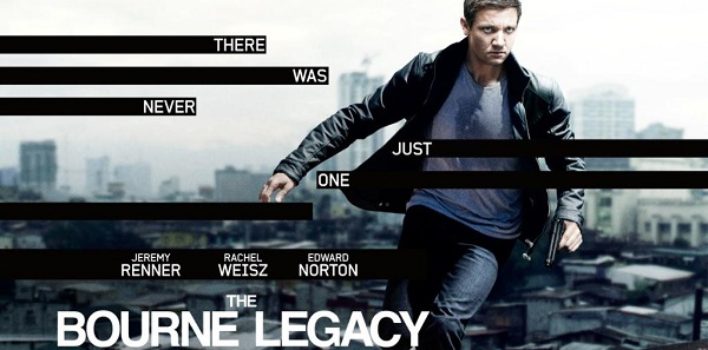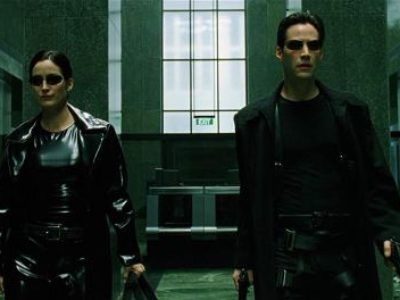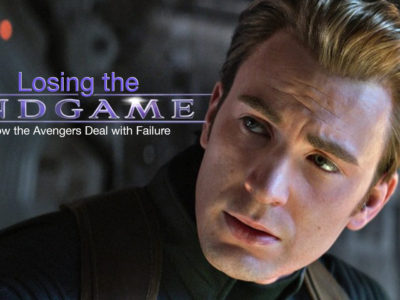Review| The Bourne Legacy
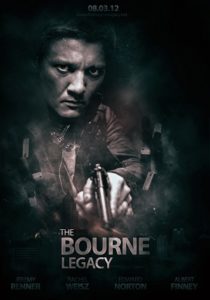 The Bourne Ultimatum provided a nice conclusion to what was a solid spy trilogy. As Mark described in his review yesterday, looking up from the water on the lifeless silhouette of a body in the water served as a call to the beginning of the story, and a visual completion of Bourne’s task. With the announcement of Legacy 5 years later, and Jeremy Renner at the helm, it was clear an expansion of the world we knew was in store. Prior to this, Renner would have been best known for his roles in The Hurt Locker and The Town. Not long after this he would solidify his celebrity status as Hawkeye in various Marvel films. But for a short time in 2012 he was Aaron Cross.
The Bourne Ultimatum provided a nice conclusion to what was a solid spy trilogy. As Mark described in his review yesterday, looking up from the water on the lifeless silhouette of a body in the water served as a call to the beginning of the story, and a visual completion of Bourne’s task. With the announcement of Legacy 5 years later, and Jeremy Renner at the helm, it was clear an expansion of the world we knew was in store. Prior to this, Renner would have been best known for his roles in The Hurt Locker and The Town. Not long after this he would solidify his celebrity status as Hawkeye in various Marvel films. But for a short time in 2012 he was Aaron Cross.
The figure of a lifeless body floating in the water has become synonymous with the Bourne movies, so it is appropriate that a tangential story begins with just that image. All the indications are there that this is the same story featuring a different operative. Aaron Cross is traveling across a mountainous region to meet an unnamed contact in a secluded cabin, played by Oscar Isaac. Once they meet Aaron discovers that this is not just a contact, but another agent in “the program”. Aaron has never met someone else in the program. This opening encounter is mixed with scenes of CIA officials in damage control mode due to what Jason Bourne is about to uncover with the help of Pamela Landy (Joan Allen) and reporter Simon Ross. We quickly learn that this story is happening simultaneously with a large section of the Bourne Ultimatum storyline. In this way it’s a peak into the ramifications of both the CIA cover-up of the Treadstone program, but also of the attempts by Bourne to uncover the truth. The threat he presents of exposing what the CIA was doing results in the decision to eliminate all “outcome operatives”, including Cross.
 The skeleton of Bourne Legacy is really quite simple; agent avoids death, agent seeks help, agent escapes. The attempts at complicating, or “smarting” it up, to bring it to a “Bourne” level of story are largely due to the editing process in the sequence of the scenes, the incorporation of Cross’s trials into the larger Bourne narrative, and very general science terminology as it pertains to the medication that Cross needs to maintain his intelligence and physical abilities. In other words, the story itself isn’t inherently difficult to follow. It relies on a fair bit of outside influence to make it that way. But that isn’t necessarily a knock on it, especially if you consider it as a lesson in the ramifications of even noble deeds (uncovering a CIA program like Treadstone). The introduction of this medication, the blue and green pills, that Cross and other “outcome agents” had to take to maintain their abilities adds a wrinkle into the program; this is no longer just mind control as we assumed was the case with Bourne. But at the same time, we don’t remember Bourne taking any of these pills, so it also adds potential confusion to the overall story. There are some good additions and explanations in Legacy that do well to build the world, but there are also bits that unnecessarily confuse things and have us second guessing what we knew about Bourne and the CIA. But maybe that’s the point.
The skeleton of Bourne Legacy is really quite simple; agent avoids death, agent seeks help, agent escapes. The attempts at complicating, or “smarting” it up, to bring it to a “Bourne” level of story are largely due to the editing process in the sequence of the scenes, the incorporation of Cross’s trials into the larger Bourne narrative, and very general science terminology as it pertains to the medication that Cross needs to maintain his intelligence and physical abilities. In other words, the story itself isn’t inherently difficult to follow. It relies on a fair bit of outside influence to make it that way. But that isn’t necessarily a knock on it, especially if you consider it as a lesson in the ramifications of even noble deeds (uncovering a CIA program like Treadstone). The introduction of this medication, the blue and green pills, that Cross and other “outcome agents” had to take to maintain their abilities adds a wrinkle into the program; this is no longer just mind control as we assumed was the case with Bourne. But at the same time, we don’t remember Bourne taking any of these pills, so it also adds potential confusion to the overall story. There are some good additions and explanations in Legacy that do well to build the world, but there are also bits that unnecessarily confuse things and have us second guessing what we knew about Bourne and the CIA. But maybe that’s the point.
One very stark contrast that I recognized on my latest viewing was how both Bourne and Cross come to their curiosity/questioning of what it is they’re doing. Bourne, as we all know, comes to it through his amnesia and eventually recalling how he got to where he is now. Through this rediscovery he questions everything, including the morality of what he’s made to do. There is no rediscovery with Cross. It seems he just is an inquisitive person. This is evident in his first encounter with another agent at the log cabin. He asks lots of questions. Too many, in fact. In flashbacks to his interactions with Dr. Shearing (Rachel Weisz) he asks numerous questions of her, about what he does, and about what they’re giving him. The most telling flashback however, and the one that reveals the most about Cross as a character, is one featuring Cross and high ranking CIA office Eric Byer (Edward Norton), who appears to have some controlling power over this “outcome” program. In the flashback Cross has just completed some difficult assignment. While Byer is debriefing him, he sees that he is shaken by what he just did. He says the following:
“We are sin-eaters… we take the moral excrement in the equation and bury it so the cause can stay pure. We are morally indefensible and absolutely necessary.”
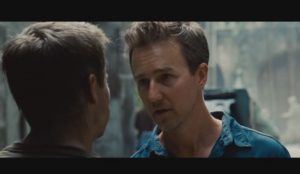 Sin-eaters. This sounds like a phrase from a fantasy novel, not a spy thriller. The inclusion of this phrase is of course no accident. Robert Ludlum took Jason Bourne to a place of questioning the morality of what he has done. We love him because while he initially flees from it, he returns to try and expose the manipulation of the program. Cross is at that stage where he is neck-deep in manipulation and is told he has the “higher calling” of devouring the sin in the world (read: eliminating threats to the U.S.) by committing deadly and destructive acts (read: eating/becoming the sin). In large part this line is wasted. They don’t do much to get back to this inner turmoil that Cross clearly has. There are small bits of what could be larger conversations with Shearing about the science behind it all, but that is also waved off pretty quickly with the following dialogue; Shearing: “I just make meds. I design, I do research, I don’t make policy!” Cross: “Nah, you just load the gun”.
Sin-eaters. This sounds like a phrase from a fantasy novel, not a spy thriller. The inclusion of this phrase is of course no accident. Robert Ludlum took Jason Bourne to a place of questioning the morality of what he has done. We love him because while he initially flees from it, he returns to try and expose the manipulation of the program. Cross is at that stage where he is neck-deep in manipulation and is told he has the “higher calling” of devouring the sin in the world (read: eliminating threats to the U.S.) by committing deadly and destructive acts (read: eating/becoming the sin). In large part this line is wasted. They don’t do much to get back to this inner turmoil that Cross clearly has. There are small bits of what could be larger conversations with Shearing about the science behind it all, but that is also waved off pretty quickly with the following dialogue; Shearing: “I just make meds. I design, I do research, I don’t make policy!” Cross: “Nah, you just load the gun”.
This idea that these operatives are sin-eaters, then the complete demolition of the program due to its failures and potential for exposure, is quite telling of our own personal ability to make things right, to turn bad to good; to save ourselves. For Christians this allegory should immediately bring Jesus to mind. To call Jesus a “sin-eater” seems more than just a little sacrilege. But consider what Bryer meant by that; these agents were to literally absorb both the evil that their enemies had in mind, as well as the evil they had to inflict on them to stop them. On the cross, Jesus took on the sin of the world and did away with it (Heb. 9:26). He was able to remove sin from our path and become our source of eternal salvation (Heb. 5:9) without committing any sinful act himself. Spy stories such as the Bourne series, which highlight the need for evil to be vanquished, also highlight our inability to do so fully and to do so without implicating ourselves and joining in sin as well. Jesus is the answer to that inherent sense within us that sin must be dealt with. He is the truth and the life, and in him is no evil. We’re drawn to stories that operate on this need to deal with sin, let us also be drawn to the only one who can perfectly defeat sin.


